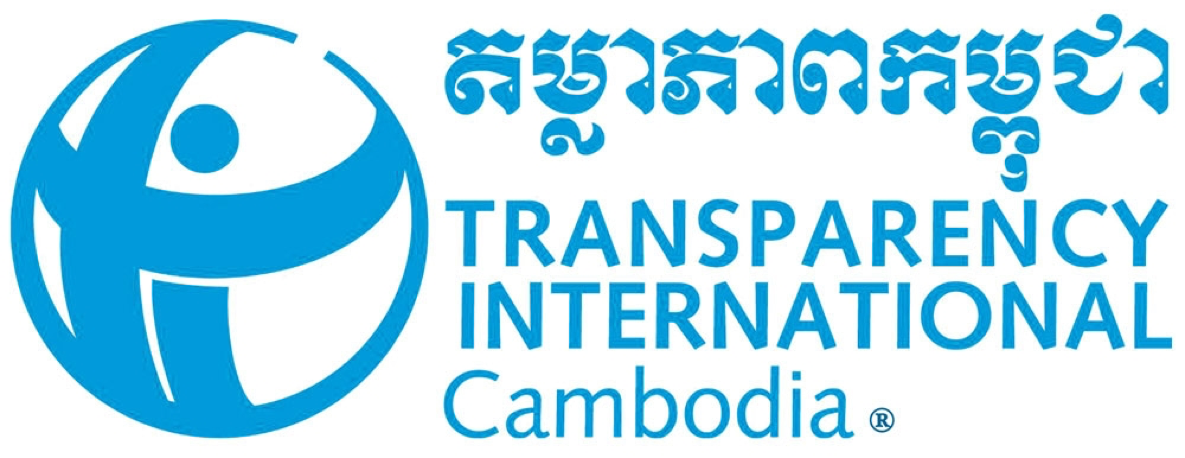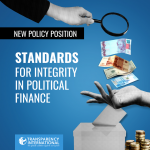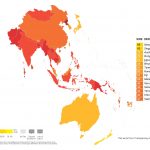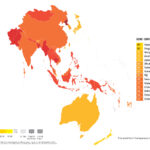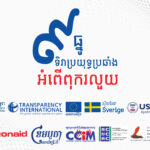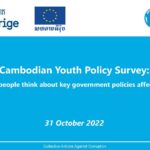Resolutions of the 2023 Anti-Corruption Day in Cambodia
Phnom Penh, 08 December 2023
Transparency International Cambodia (TI Cambodia), Cambodian Journalists Alliance Association (CamboJA) and Cambodian Youth Network (CYN) commemorated the 2023 Anti-Corruption Day in Phnom Penh, Cambodia on 08 December 2023. With a total of 150 participants from civil society organisations, trade unions, communities, academia, and government institutions, the commemoration was honoured under the subject “Leadership with Integrity Brings about Justice and Prosperity.” This clearly emphasises the harmful effects of corruption on Cambodia’s political and socio-economic development. For Cambodian people, the government and all relevant stakeholders, silence is no longer an option anymore, we must act now to promote integrity and fight against corruption. With the Cambodian government putting effort in combatting corruption as stated in its Pentagon Strategy through education, prevention, and enforcement of anti-corruption measures, and in support of the government’s commitment to taking immediate intervention measures for national interests announced in an open letter by the prime minister for observing this year’s anti-corruption day, respective discussions were held, with the goal of drawing and collecting inputs from relevant stakeholders. The debate shared a clear understanding of the relationship between corruption risks and the consequences of a lack of political and electoral integrity, disclosure of ultimate beneficial ownership, credible asset and liability declaration, and political finance. The plenary debates endorsed the following resolutions, urging key parties, particularly the Cambodian government, to consider them:
- Political integrity
Political integrity shall be embraced within the new leadership. Political integrity means exercising political power consistently in the public interest, independently of private interests, and not using power to maintain the own wealth and position.
Political integrity is only possible when safeguards exist throughout the political process: the process of elect, appoint, select those who hold power is free from the undue influence of vested interests, all stakeholders have inclusive, open and meaningful opportunities to equally influence decision-making, and political decisions and those holding power are subject to scrutiny by the public and institutional checks, with consequences for using power for private gain. Undisclosed, unchecked, or undue influence over the powerful skews resources and policies away from the common good. It perpetuates inequality, undermine democracy, and deprives people of their human rights.
Political integrity is a manifestation and practice that opposes political corruption, which is the manipulation of policies, institutions, rules of procedure, and decisions by political decision-makers to abuse their positions for private gains. This include gross conflict of interest, where elected politicians, their families, or associates hold substantial interests, the misuse of state resources, such as embezzling or investing in necessary projects shortly before election campaigns, and the influence of businesses supporting political candidates to turn them into their clients. In each case, the unethical exploitation of power for personal benefits undermines the integrity of democratic processes and erodes public trust in governance.
- Political finance transparency
Political finance is key to ensure integrity within electoral process which can result in free, fair and competitive election. Although electoral laws and political party law stipulate some provisions of funding sources for political parties, there is neither legal definition of what constitutes a donation or a contribution, as well as limits on contributions to political parties and candidates nor explicit ban on anonymous donations to political parties. There is no requirement for the disclosure of beneficial ownership in association with political finance. The government should consider adopting law on political finance and elections campaign to ensure accountability, transparency and promote political integrity. Both campaign finance and routine party funding must be conducted in a fair and accountable manner. An effective oversight of political financing should be ensured through the disclosure of the financial reports of political parties to the public. This regulation would serve to enforce accountability and ensure equal opportunities for all parties to compete, safeguard the independence of parties from undue donor influence, and mitigate the risks of corruption.
- Asset and liability declaration
Declarations of assets, liabilities and other interests owned or controlled by public officials, their families and close associates have become a key tool in combating corruption around the globe. Asset declarations serve to prevent, detect, investigate and prosecute corruption. The Cambodia’s asset declaration regime should be improved by not only omitting the clause “highly confidential” in Article 20 of the anti-corruption law but publishing at least a summary of asset declarations submitted by public officials, especially for those with high discretionary powers, i.e. politicians, and by revising the Article 17 to include the requirement that the assets of the spouse of officials making declaration are also disclosed, and improving the regime by developing the process for the verification of asset declarations, with information on this process shall be developed and also made it being publicly accessible.
- Beneficial ownership integrity
Beneficial ownership transparency is critical in assisting anti-corruption efforts. The government should improve or modernise business registry platform by collecting information on beneficial ownership. Register with a requirement that adequate and structured data on the ultimate owners of all legal entities in Cambodia be compiled and publicised on a free, searchable online database and by ensuring free online access to the company registry, including information on the directors and direct owners of companies; and requiring private entities to report their shareholders and beneficial owners when submitting a proposal for tenders during public procurement processes.
Download Resolutions of the 2023 Anti-Corruption Day in Cambodia
This post is also available in: Khmer
 English
English ភាសាខ្មែរ
ភាសាខ្មែរ